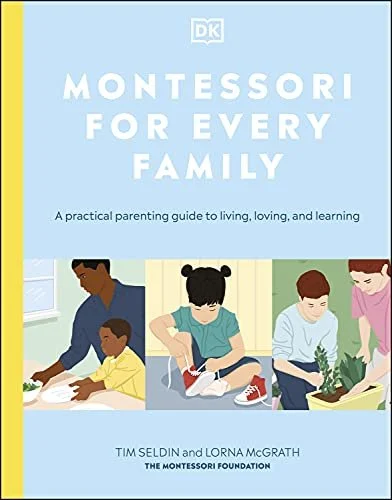
What is Montessori education?
Dr. Maria Montessori was an Italian physician who lived from 1870 - 1952. She dedicated her life to careful observation of the behavior and learning of children. Through her direct work with young children, Dr. Montessori developed an approach to education that acknowledges and respects young children as individuals, prioritizes their developmental needs, and nurtures each child’s independence and growth. She developed many of her own educational materials, which we still use today! Dr. Montessori believed that the key to achieving lasting peace in the world and ensuring that humanity reaches its highest potential was to change the way that we educate children.
Characteristics of a Montessori Classroom:
Independence: The environment is set up in such a way that the children can move freely, access materials independently, and engage in daily care of themselves and the classroom with little to no adult assistance.
Peaceful Adults: The teachers, or guides, are calm. Their voices are quiet and their movements are purposeful so that they not disrupt or disturb the children at work.
Montessori Materials, designed for each developmental stage: Materials on the shelf are tidy, clean, and inviting to the children. Students may freely choose materials that they have been shown a lesson on.
Engaging Lessons: Lessons are conducted individually or in small groups. Children are encouraged to return to the lesson materials independently after the initial lesson presentation. In Primary, lessons are designed to refine the senses, develop concentration, support the acquisition of language, lay the foundation for number sense, and instill self-discipline. In Elementary, lessons are designed to ignite imagination, encourage independent exploration, and nurture meaningful engagement with society, culture, and the natural world.
Grace and Courtesy: Manners, care of the environment, kindness, and peacefulness are all essential components of the Montessori classroom culture. Children practice showing respect to the environment and materials, as well as to one another. Students learn to communicate honestly and respectfully, even when they disagree or feel upset.
Social Life: Montessori classrooms are inherently social, and Dr. Montessori knew that consistent practice is essential to children’s mastery of social skills. Children in a Montessori classroom are practicing social skills all day long, and older students will begin to collaborate on research projects, develop small business proposals together, and independently solve problems that arise in the class community.
Community: Community values are cultivated and reinforced daily. Students participate in creating agreements (rules) and establishing expectations for the group. Older students hold class meetings regularly and the community decides together how to address problems that arise so that every student can feel safe and welcome at school.
Practical Skills: Practical life is essential in a Montessori classroom. In Primary, practical life consists of daily living skills like using buttons, scooping and pouring, tying shoes, and preparing simple foods. In Elementary, practical life includes using money, managing work time, cooking, gardening, and managing projects.
Check out the books below to learn more about Montessori and how the approach can be integrated at home.



